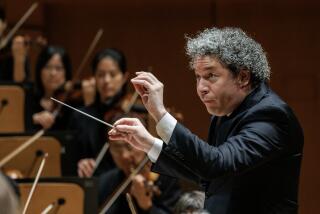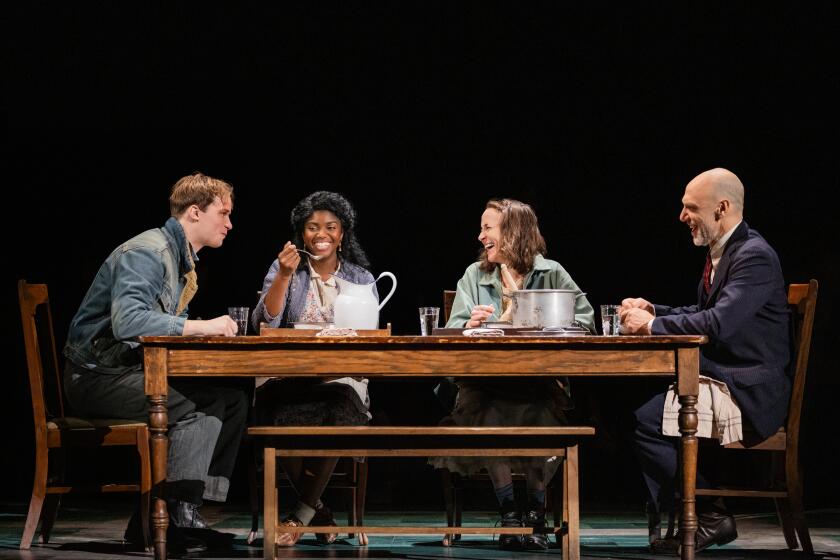MUSIC REVIEWS : Perick Leads Chamber Group in French Program
Holding the Los Angeles Chamber Orchestra to its highest standards--measurements achieved in memorable single performances led by former music directors Gerard Schwarz and Iona Brown and by its new musical chief, Christof Perick, before he took over--one would have to rank Perick’s latest LACO program, a Gallic repast, below those great moments.
Still, as heard Wednesday night in Ambassador Auditorium (and scheduled for repeats Thursday at UCLA and Sunday afternoon in Orange County), this program of works by Ravel, Berlioz and Bizet nevertheless gave pleasure through the ensemble’s genuine achievement and Perick’s unflagging stylishness.
The level of polish--LACO’s best level--merely had not been reached by this first performance.
The agenda itself, consisting of Ravel’s “Ma Mere l’Oye” Suite, Berlioz’s “Nuits d’Ete” and the Symphony in C of Bizet, had to be welcome; these works are all familiar and cherished, but hardly overexposed. LACO had never performed the Bizet Symphony before Wednesday, for example.
Perick & Co. revived admiration for the virtues in these scores, while showcasing the orchestra strongly in these performances. All sections and principals of the 40-member ensemble were on display here; among other in-orchestra soloists, oboist Allan Vogel (in the Symphony) covered himself, and Bizet, in glory.
All one wanted in addition was the confidence that comes from repeated performances, as well as that supreme lightness of texture and instrumental transparency one associates with French music at its peak, and with this orchestra at its best. If that is asking for perfection, what better place to ask than here?
Susan Graham, replacing the reportedly indisposed Norwegian contralto Anne Gjevang on short notice, handled the textual and technical intricacies of Berlioz’s enigmatic “Nuits d’Ete” with ease and aplomb.
The American mezzo-soprano produced especially fine contrasts in the piano to pianissimo challenges of “Absence,” while maintaining interest in its musical content; her handsome voice, though limited in color and amplitude, seemed the right one for this assignment.
Perick--as he did throughout this evening--led an orchestral accompaniment rich in detail and firmly focused on the composer’s thought and vision.
More to Read
The biggest entertainment stories
Get our big stories about Hollywood, film, television, music, arts, culture and more right in your inbox as soon as they publish.
You may occasionally receive promotional content from the Los Angeles Times.






